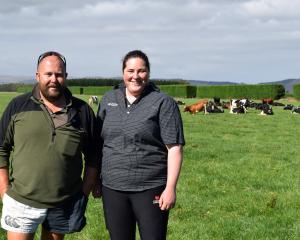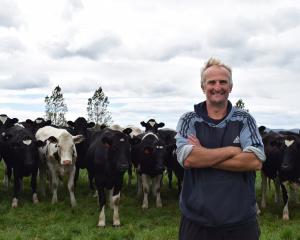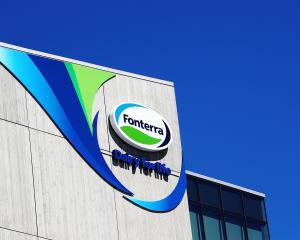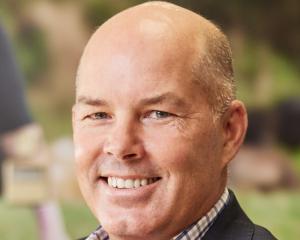
Two out of the five boilers at Clandeboye will be running with their cleaner fuel source later in the year after the dairy giant’s largest decarbonisation investment so far.
The co-op rates the project a crucial step in its commitment to exiting coal by 2037.
Overall emissions will be cut by 9%, with reductions totalling 155,000 tonnes of carbon dioxide equivalents each year.
Clandeboye cheese and protein operations manager Conrad Harle said the wood pellet boilers would go through a commissioning phase in August and be fully operational by about September.
"It’s a very important project and we are really excited about it. The conversion is a big part of our sustainability plan for Fonterra.
‘‘Just by these conversions it will reduce the emissions by about 9% overall which is equivalent to taking over [64,000] cars off the road [each year].
‘‘It’s massive and we are really proud to be part of that journey."
He said there was a robust planning process in place to minimise disruption to processing.
"So the wood pellet option provides the lowest total cost of ownership and that’s the cost of building, purchasing and converting an asset and ongoing operating costs over its lifespan, and so it’s the lowest compared with other options.
‘‘Wood pellets are also more efficient when we put them through the fuel handling process and delivery and also line up of course for fuel diversity and resilience not just at Clandeboye, but [for] the South Island."
Plans will continue for transitioning Clandeboye’s three other boilers, and other South Island sites, to renewable energy as part of the co-op's wider decarbonisation programme.
Mr Harle said the pellets were a cost-effective option, but their actual cost was commercially sensitive under the terms of an agreement with the co-op’s wood pellet supplier.
"Coal just doesn’t fit with our ambition and our sustainability goals. We are passionate about our plan and want to stick to that plan and we see this as a step in the right direction. It’s 155,000t that we have cut our emissions by, so it’s a big deal."
Clandeboye is one of Fonterra's largest manufacturing sites, processing 40% of its South Island milk into cheddar, mozzarella, whole milk powder and other products for exporting to more than 50 countries.
Chief operating officer Anna Palairet said the project was a milestone in its sustainability journey as it worked towards a 50.4% reduction in absolute Scope 1&2 emissions (from a 2018 baseline) by 2030.
The Clandeboye conversion was another demonstration of the co-op’s commitment to sustainability and climate action after boiler conversions at its Te Awamutu and Hautapu sites, she said.
The conversion is co-funded as part of an Energy Efficiency and Conservation Authority (EECA) partnership. An agreement between the pair has the co-op set to achieve about 1.2 million tonnes of cumulative CO2 reductions from coal sites being phased out this decade, lifting its by-2030 target from a 30% reduction to a 50% one.
EECA chief executive Dr Marcos Pelenur said it was encouraging to see Fonterra continuing to progress its emissions reduction targets.
Another decarbonisation project was completed at Clandeboye with the installation of a heat recovery system in a lactose plant last February.
The new system recovers high-grade heat from the lactose plant's equipment, saving the site 2.5t of steam per hour and decreasing annual carbon emissions by about 3000t.
Nationally, Fonterra expects this season’s milk collection will end up being a four-year high. The co-op’s forecast total for 2024/25 is 1498 million kgMS, up on last season’s 1471m kgMS and the highest since the 2020/21 season, when it collected 1530m kgMS.














